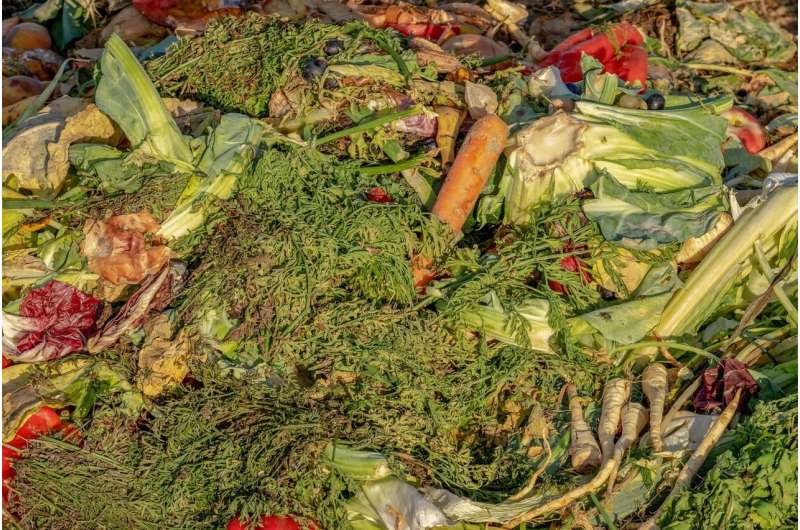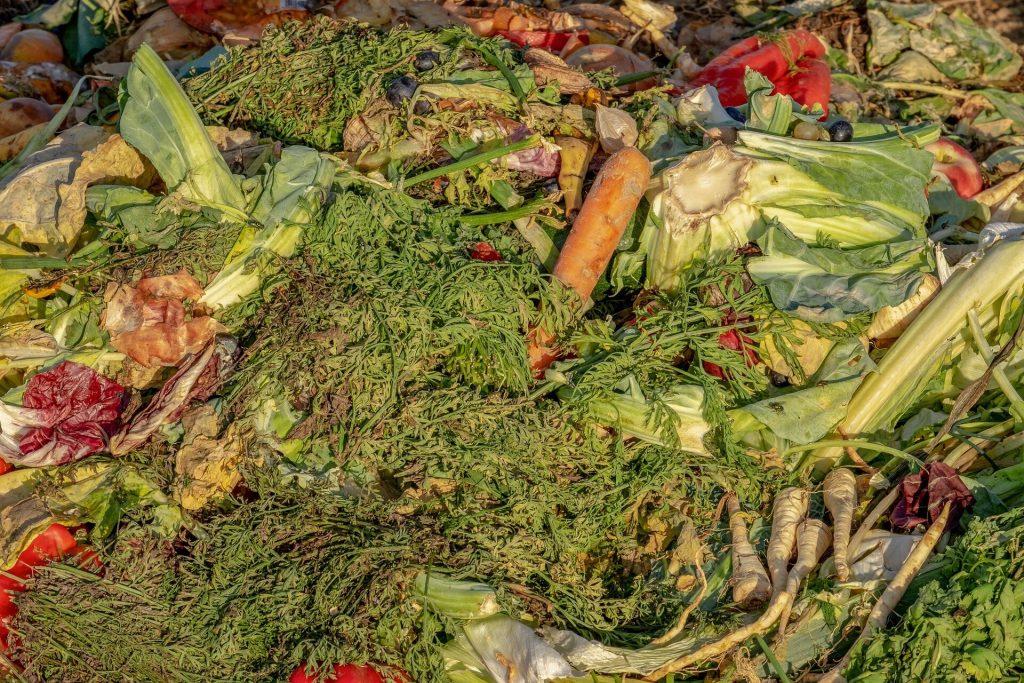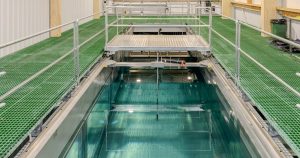
With the construction of a massive new garbage incinerator in Miami-Dade County now in serious doubt, environmentalists and climate activists hope it will open the door for a waste disposal method they’ve been pushing for decades.
Is it finally time for large-scale composting in South Florida?
The reality is that we’re still years or more away from being required to sort our eggshells and banana peels from the rest of our trash. But a new county report outlines what would need to happen to make composting a bigger part of a waste disposal pipeline that has long depended on landfills, which are running out of room, and incinerators, which cost hundreds of millions and communities want nowhere nearby.
It suggests a year-long pilot study to test a compost operation’s effects on drinking water under our feet and to update zoning policies to offer a legal pathway for small private companies to compost on farmland.
“The mayor’s solution that basically puts trash on trucks and train cars hundreds of miles away, burning carbon all the way up, makes it even more important that we compost locally,” said District 5 Commissioner Eileen Higgins, who sponsored the resolution for the county to put together a report on composting.
Advocates argue that composting protects the climate because it reduces the methane that’s formed in landfills while creating a “circular economy” where organic waste like food scraps aren’t wasted. Instead, the process produces rich, nutrient-dense soil that gardeners sometimes refer to as “black gold.”
But trying to run a composting operation is also a complicated business in Miami-Dade, falling under several agencies. It’s classified as a solid waste operation that can only happen on industrial-zoned land, even though the end product is designed to be used in farming and gardening.
The zoning policies, critics say, have made Miami-Dade lag behind other states and communities in Florida that have created robust composting systems—and was the reason the county had to turn back a $200,000 grant that would’ve scaled up three locally owned compost operations last year.
Broward is also pondering large-scale composting too. Waste Management (WM) offered to open back up its Okeechobee Organics Facility if the county agrees to initiate a composting program in the future, said Dawn McCormick, the communications director of Florida WM.
Broward Mayor Bean Furr, who also serves as co-chair of the county’s Climate Change Task Force, said the proposal keeps with the “environmental stewardship” and “progressive policies” of Broward County.
“Your organic household waste and garbage when it gets landfilled generates methane which traps heat, warms the planet, causes the seas to rise, and puts those of us living here, where we are only a few feet above sea level, at risk,” Bean Furr said during Tuesday’s Broward County Commission meeting. “This agreement gives us the chance to divert those organics.”
Except the plan comes with a hitch—expanding the height and width of Monarch Hill Landfill, in Pompano Beach, otherwise known as “Mount Trashmore.” After five hours of deliberation, the items were deferred until Feb. 25.
Discover the latest in science, tech, and space with over 100,000 subscribers who rely on Phys.org for daily insights.
Sign up for our free newsletter and get updates on breakthroughs,
innovations, and research that matter—daily or weekly.
“Broward County is allowing Waste Management to make false promises because, at the end of the day, waste management can choose not to recycle if they unilaterally deem it to not be economically feasible,” Todd Drosky, Deerfield Beach City Commissioner said at the Broward County Commission meeting.
For environmental organizations, the Miami-Dade’s pivot away from what was billed as the biggest waste-to-energy project in the nation, was a cause for celebration. Several groups attending the annual Everglades Coalition conference at the Miccosukee Casino & Resort in western Miami-Dade, issued a joint statement on Friday morning calling Levine Cava’s decision to turn away from waste incineration and hopefully towards zero waste a “winning strategy for the Everglades and its neighbors.”
“We know that people who live around trash burners suffer inordinate health effects from pollution,” Dominique Burkhardt, Earthjustice senior attorney said in a press release. “Looking ahead, a true Zero Waste plan to reduce waste that would otherwise be burned or shipped to other communities is the healthiest option for people and the planet.”
But Levine Cava’s reasons for flipping her decision on the waste-to-energy plant weren’t exactly an endorsement of a zero waste plan. After pushback from surrounding cities and most recently, Eric Trump, son of President Trump, whose family owns Trump National Doral Golf Club, the mayor now envisions sending the county’s tons of waste to a landfill, an option she had previously panned .
“The administration does seem to have amnesia,” Higgins said during the Jan. 28 commission meeting. “I think land filling is a terrible idea and outrageously dangerous for our environment.”
A formal decision on the future of the incinerators could come later this month. Commission Chairman Anthony Rodriguez said votes will be taken in February on whether to move ahead with an incinerator.
Pros and possible cons of Miami-Dade composting
The composting report sent to the commission on Nov. 19 details the benefits and possible setbacks of turning food scraps into soil, with the biggest concern being the Biscayne Aquifer that lies just a few feet below the land’s surface and is the principal source of drinking water for Miami-Dade and Monroe County.
But maybe the biggest hurdle would be similar to the problem with recycling: community education in sorting the items to reduce contamination.
One issue: PFAS are not a natural byproduct of the decomposition of organic materials but instead come from utensils and other food serviceware that are advertised as “compostable,” the report said.
One example the report listed of composting going wrong was in Massachusetts, where the facility’s groundwater and compost was found to have PFAS concentrations up to 1,000 times higher than Environmental Protection Agency standards. While the facility wasn’t confirmed to be at fault, it was shut down.
While small-scale programs are encouraged to provide benefits for soil enhancement on a local scale, the report acknowledges to actually make a significant reduction in the 350,000 tons of organic waste Miami-Dade County produces. In the long term, there would be a need for “large-scale county-wide programs facilitated by the support of County leadership.”
Arcadis, a design and engineering consulting firm, estimated the first-year cost to construct and operate the three composting facilities that would be necessary to dispose of all the organic waste in the county would run between $25.2 million and $28 million. Alternatively, the estimated first-year cost to construct and operate an enclosed “in-vessel” composting facility is estimated between $3.1 million and $17.5 million, not including the capital cost of land or buildings.
Higgins, who sponsored the resolution to produce the composting report, hopes to introduce legislation in February that would fix the zoning problems and allow composting on farmland not hooked up to sewage.
“Composting has got to become more prevalent, and our code needs to update and coordinate with the times to make that feasible for companies to operate and for homeowners and people like you and me to figure out how to participate,” Higgins said.
One local business that would benefit from the changes is Compost for Life, a doorstep pickup service and commercial composter for restaurants, flower shops and more. Francisco Torres, the owner of Compost for Life, said he is working with Higgins for a legal pathway to expand and grow his business.
“Food scraps are not waste,” Torres said. “We can’t be treated as waste haulers, we are healing our planet by bringing life to our soil where more than 95% of the food we eat comes from.”
2025 Miami Herald. Distributed by Tribune Content Agency, LLC.
Citation:
As Miami-Dade cools on burning its garbage, is it finally composting’s big moment? (2025, February 3)
retrieved 3 February 2025
from https://phys.org/news/2025-02-miami-dade-cools-garbage-composting.html
This document is subject to copyright. Apart from any fair dealing for the purpose of private study or research, no
part may be reproduced without the written permission. The content is provided for information purposes only.








